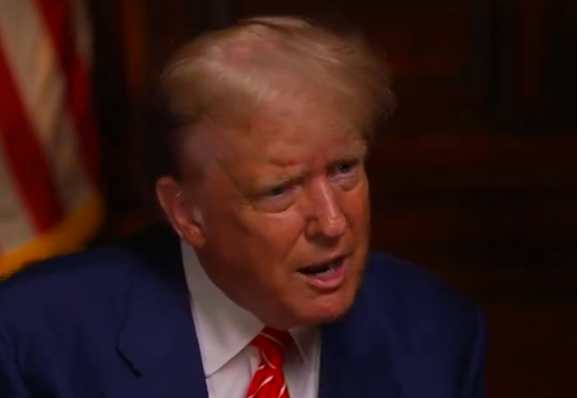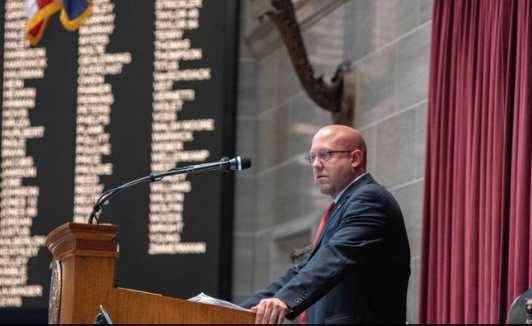Republicans dominate governors’ races
Republicans also flexed their muscle in races for governor, even in Illinois, Maryland and Massachusetts – states that dependably have gone for Democrats. As the Associated Press reported, states shoulder responsibility for setting up the insurance exchanges called for in Obama’s health care law, and some have led in raising minimum wages, another of the president’s goals.
Among the winning Republicans were a handful of incumbents who are potential presidential contenders in 2016: New Jersey’s Chris Christie , Ohio’s John Kasich, Michigan’s Rick Snyder and Wisconsin’s Scott Walker.
Among Democrats, New Hampshire’s Maggie Hassan held on to the governor’s seat and Pennsylvania businessman Tom Wolf beat the incumbent, Tom Corbett.
Obama’s agenda faces challenge
House Speaker John Boehner said the Republican-controlled Congress will work on energy and jobs legislation, which he said Senate Democrats have been stalling while in control. “It’s time for government to start getting results,” he said.
With control of Congress, Republicans could raise new disputes with Obama over his signature legislative achievement, health care reform, which has allowed millions of people to secure insurance coverage they could not previously afford. Many Republicans view the law as excessive government involvement, and have repeatedly called for its repeal.
Republicans also have attacked Obama’s handling of the Ebola crisis and called for approval of an oil pipeline from Canada through the central U.S., and a curb on government regulation of businesses.
Some opposition lawmakers have disputed the president’s handling of Russia’s intervention in Ukraine and U.S. airstrikes against Islamic State militants in Iraq and Syria.
The United States’ two main political parties also are feuding over spending and tax policies and immigration reform.
Obama had vowed to set new immigration rules by executive order by the end of the year, after the House balked at acting on comprehensive reforms approved by the Senate. Some Republicans already are saying they will seek to block the president from unilaterally changing the country’s immigration policies to allow millions of migrants who entered illegally to stay in the United States.
Foreign policy implications
When the U.S. Republican Party takes control of the Senate in January, dominating both houses of Congress, it will complicate Obama’s foreign policy initiatives, experts say.
It will become more difficult to present a united front to the world, said Jacob Parakilas, deputy head of the USA program at London’s Chatham House.
“The perception of the president as dictating the agenda and the Senate following his directives is going to give way to a story where the president and the Senate will be fighting over a possible Iran deal, additional sanctions on Russia, the strategy to fight the Islamic State, and a variety of other issues,” Parakilas said.
The new Republican senators will have a voice on international issues and their inclination will be to oppose the president, said Johannes Thimm of the German Institute for International and Security Affairs in Berlin. But if serious national security issues come up, they will likely support him.
“If the president has to deal with a crisis, or if he has to take a more assertive stance, then he can rely on getting the support from the Republicans – first of all, because the Republicans call for a more assertive approach, so they are not going to be the ones holding him back, and second because in serious crises we’ve always witnessed a sort of ‘rally around the flag’ effect,” said Thimm, speaking by Skype.
Thimm said Republicans are likely to be supportive on some issues of importance to Europeans, including standing up to Russia and boosting trans-Atlantic trade. But he said they could block Obama’s efforts to work with European leaders on climate change.
One key issue is the nuclear talks with Iran, which face a November 24 deadline.
Analysts say now there could be more pressure to reach an agreement and have it approved by the current, Democrat-controlled Senate before the year’s end. Otherwise, Parakilas said, it will be more difficult for the president to get the Republican-controlled Senate to reduce sanctions on Iran as part of an accord.
“He will definitely be pushed to be tougher, more or less across the board,”
Parakilas said of the president.
The same could apply to Obama’s response to Russia’s more aggressive foreign policy in Ukraine and elsewhere, and the fight against Islamic State militants in Syria and Iraq.
Troubled by political gridlock
Many voters said they are disgusted with political gridlock between Democrats and Republicans in Washington.
“They have to start doing something,” Arizona voter Lee Deremo said of congressional politicians, “and I think it just needs to change, plain and simple.”
Anger with Washington played heavily in the elections, according to Republican strategist Ford O’Connell: “Two-thirds of America thought the country was going in the wrong direction. They wanted a change in direction. And now it is up to Republicans to bring that change.”
Tuesday’s vote was a referendum on Obama’s leadership, according to American University professor Allan Lichtman.
“President Obama dragged down the Democrats,” the political historian said via Skype. “It is not as if Republicans in this election represented grand ideas, inspiring solutions to national problems. They were simply pinning every Democrat [candidate] to an unpopular Democratic president.”
Reacting to a new political reality in Washington, Obama has invited congressional leaders of both houses and both political parties to the White House Friday.
VOA’s Michael Bowman and Al Pessin contributed to this report.
Pages: 1 2






